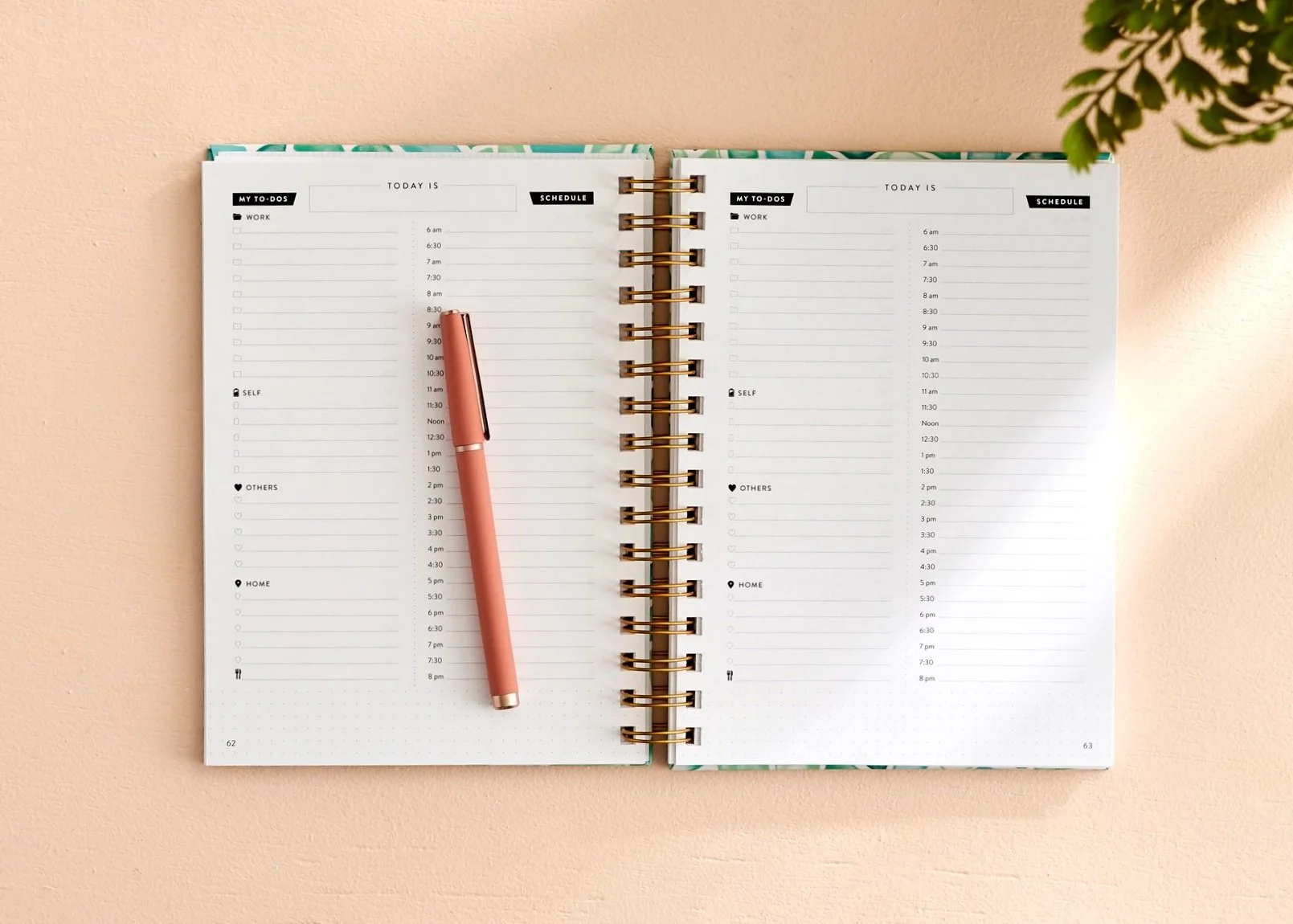Navigating ADHD: Strategies for Organization and Planning with Balance Bound
by Brooke Forry
We have heard from many customers that Balance Bound Planners are the best planners for adults with ADHD. While designing a planner to help manage ADHD wasn’t our goal, this claim certainly makes sense: the organizational techniques built into the Balance Bound framework help to curb overwhelm, not create it.
The Mayo Clinic defines Adult attention-deficit/hyperactivity disorder (ADHD) as “a mental health disorder that includes a combination of persistent problems, such as difficulty paying attention, hyperactivity and impulsive behavior. Adult ADHD can lead to unstable relationships, poor work or school performance, low self-esteem, and other problems.”
In other words: a diagnosis of ADHD can make it difficult to keep your life organized. The impulsivity and inattention that often come with ADHD can make it hard to stay on top of tasks and keep track of important responsibilities and people (including yourself). As a result, it’s important to develop strategies for staying organized and accountable.
One simple, fool-proof strategy: writing things down. You are 42% more likely to achieve a goal just by writing it down. (Seriously, this is true!) We firmly believe that this can include small goals in the form of daily tasks that need to be completed.
Where you write things down is important, too.
The organizational strategies of the Balance Bound Planner — deemed by many as the best day planner for ADHD — help you break down tasks into manageable chunks by dividing each day’s tasks into four broad but distinct sections: work, self, others, and home. These sections capture the different roles you play in your life, and writing tasks down in this format can help to keep individuals with ADHD (or anyone!) organized and on track while improving productivity.
If you have trouble remembering to practice general care tasks or creating healthy routines for your personal well-being, this is where the “self” section can serve as an integral component of the Balance Bound layout.
Writing down your self-care tasks like exercising, drinking plenty of water, connecting with friends, or scheduling doctor's appointments ensures that you are prioritizing yourself so you can continue showing up for your community.
Keeping track of household responsibilities in the “home” section — creating a regular routine for getting things done like laundry, cleaning, and paying bills — can help to ensure that your space feels tidy and calm. In general, home organizing solutions for people with ADHD can drastically reduce the stress of living in a space that feels chaotic and impedes your ability to focus, as well as cutting down on the amount of time spent trying to find or keep track of items.
If you need a better handle on how to get organized at work while managing ADHD, it’s important to break down tasks into manageable chunks for each step in the process. Using the “work” section in the Balance Bound Planner can help you map out individual tasks over the course of one day or several days, and ensure that tasks don’t get overlooked or forgotten as you work toward an end goal.
While we love writing things down, we also don’t shy away from apps and online tools that can work in conjunction with a Balance Bound Planner.
My personal organization methods include keeping events, appointments, kids’ activities, etc. in a shared Google Calendar that my husband has access to; my Balance Bound Planner is where my day-to-day, more macro tasks live (and where I copy down that week’s events, appointments, etc. to keep on my desk at work). This method helps me with organizing my life in a way that feels less overwhelming, focusing on one week at a time without always having to look at a screen to figure out what's next.
Overall, having and maintaining personal organization systems is an important part of managing ADHD. Taking the time to set up systems and routines can help to reduce stress and make it easier to stay on top of tasks.
And of course, seeking support from a mental health professional who specializes in ADHD is incredibly important, and can be beneficial in developing effective organizational strategies and finding a treatment plan that works for you.
What additional organizing solutions for people with ADHD have you adopted? When it comes to ADHD and planning, what methods have worked (or not worked) for you? What is the best organizer for ADHD that you’ve found before now?
If you’re interested in trying the best daily planner for ADHD, explore the Balance Bound shop or sign up below to receive an abridged version to test out for free:




